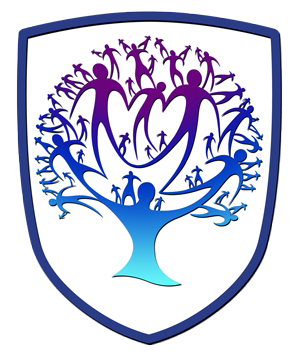| Year | Term 1 | Term 2 | Term 3 |
|---|---|---|---|
| Year 7 | Unit 1 - An introduction to Drama This unit will introduce students to some of the basic techniques used to create a piece of performance. Unit 2 - The Lion King Concentrating on: - Facial Expressions - Body Language - Spatial Awareness - Voice Projection - Tone of Voice | Unit 3 - Darkwood Manor Concentrating on: - Basic Physical Theatre skills - Group improvisation - Narration - Hot Seating - Character development | Unit 4 - Roald Dahl This unit will use Roald Dahl stories and poems to create new characters from the world of Roald Dahl as well as encourage different way to tell stories and bring written texts to life. Unit 5 - Spy School This unit will encourage students to use their presentation skills to develop a fictional world. They will also look at different styles of performance. |
| Year 8 | Unit 1 - Physical Theatre Concentrating on: - Types of Physical Theatre - Non-naturalistic Role Play - Sustaining a Role - Devising from a stimulus Unit 2 - Scary Play Concentrating on: Exploring status. Character development techniques Using production elements to create atmosphere. Creating tension. |
||
| Year 9 | Unit 1 - World War 1 Concentrating on: - Persuasive language - Sustaining Character - Hot Seating - Forum Theatre Unit 2 - Devising Concentrating on: - Creating work from a Stimulus - Devising work incorporating performance and technical skills - Turning work into a scripted piece Unit 3 - Text in Practise - Studying a set play in details - Analysis of character - Understanding lighting, sound and costume - Understanding comedy and its use in multi roling |
||
| Year 10 | Unit 1 - Understanding Drama: This is taught throughout the year and covers such things as: - Types of performance - Key drama skills - Theatre practitioners - Staging - Rehearsal techniques - Theatre roles - Evaluation of a live performance Knowledge and understanding is assessed in the written mock exam at the end of Year 10 followed by a written exam in Year 11. Unit 2 - Devising Drama: Students are given a range of stimuli in which to research, develop and create a piece. They are also expected to produce a log that outlines the process they took to the final production. In Year 10, students are assessed on their final performance and devising log through a mock exam process. Unit 3 - Text in Practise: Students begin to study their set text “Noughts and Crosses”. As part of their study, they are also expected to perform 2 extracts from the play as a mock exam. Students are assessed internally for all elements of the course in Year 10. |
||
| Year 11 | Unit 1 - Understanding Drama: This is taught throughout the year and covers such things as: - Types of performance - Key drama skills - Theatre practitioners - Staging - Rehearsal techniques - Theatre roles - Evaluation of a live performance Knowledge and understanding is assessed in the written exam at the end of Year 11. Unit 2 - Devising Drama: Students are given a range of stimuli in which to research, develop and create a piece. They are also expected to produce a log that outlines the process they took to the final production. Students are assessed on their final performance and devising log. This is internally marked and externally moderated. Unit 3 - Text in Practise: Students will return to the play “Noughts and Crosses” as part of the ongoing revision lessons. They are also expected to perform 2 extracts from a contrasting play. Students are assessed by a visiting examiner for their extract performances. Their understanding of the set play and knowledge and understanding of Drama is assessed in their written exam at the end of Year 11. The course content is weighted in the following ways: - The Exam constitutes 40% of the GCSE. (Externally marked) - The Devising Drama unit constitutes 40% of the GCSE. (Internally marked and externally moderated) - The Text in Practise scripted performance constitutes 20% of the GCSE. (Externally marked) |
||

